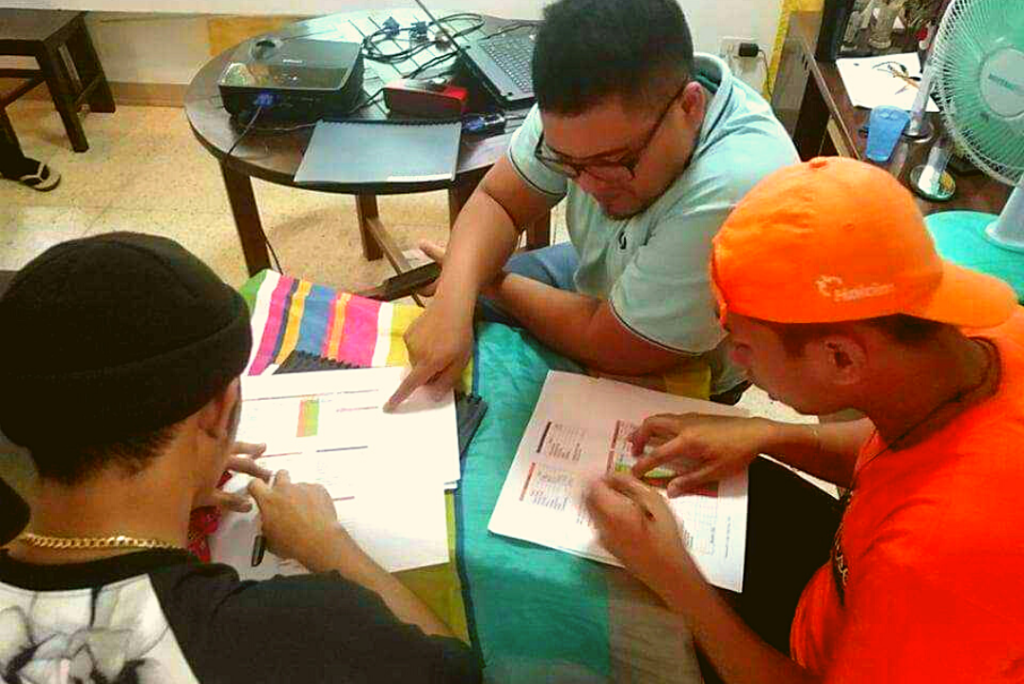The Philippines won the championship of the longest length of confinement. Until now after 7 months, people age 15 to 65 years old are still not permitted to leave their places.
Second Chance Program (SCP) was not able to operate fully due to the pandemic situation. Partner Youth Homes and Family Courts do not allow our team to have any visit or personal interaction with the youth. The ‘new’ world is online! Everything is put on hold. For a short time, this is a vacation. But in the long run, it becomes boredom. SCP team addressed these concerns by initiating online training and individual sessions. In the Youth Homes, difficulties arose very fast, how to ask a youth “how are you?” when he is occupying the computer of staff and is surrounded by ten others around him? Even the privacy of words somewhere is stolen by such a setup.
This is the fact that most of our youth who are newly released from Youth Home or in Court Diversion, after 6 months found themselves backsliding and not being productive. This long quarantine in Metro Manila has deeply affected any positive and productive reentry in the society of the youth. “I cannot plan clearly what to do next since I am just at home doing routine activities, it feels hopeless…” As they are not allowed to go outside, they spent most of their time on online games, social media, and some household chores.
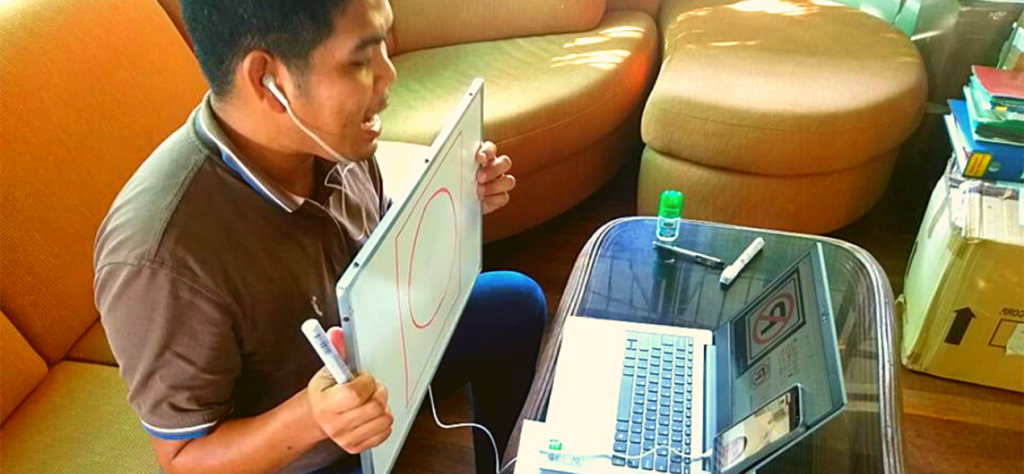
Bored in their lives, bothered by their unresolved inner issues, hindered to open up about this, the SCP team had to deal with these factors. How to eat an elephant? “piece by piece” said the Chinese proverbs.
So after assessing all the difficulties, and in parallel implementing the precautionary measures, we decided to relaunch the Aftercare Subprogram (ACP). Among the youth released by their judges, the SCP team selected those who expressed their willingness to journey with Aftercare Subprogram (ACP). Contact with the parents was established and home visits were conducted. Always taking into consideration the health protocols and precautionary measures for the SCP team. After much preparation, the intensive training for ACP started last September.
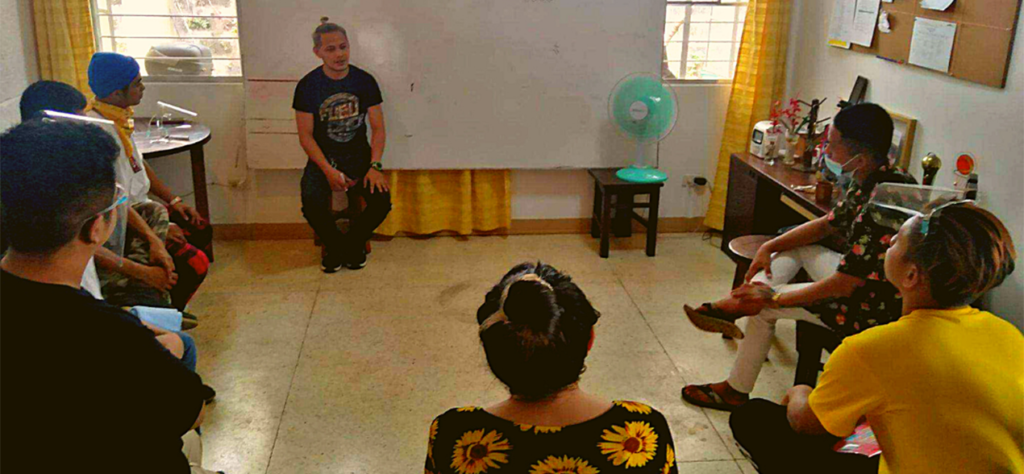
Such a joy to have the visit of some Alumni or former beneficiaries who come to support the team during the weekend training. They shared testimonies of their transformation and how their journey with ACAY helped them on their successful reentry into society.
One started through a comedic statement “do not bother with the color of my hair (blond), I am the ‘victim’ of my wife who had to learn hairdressing and I offered myself for this. Now I am blond!” Then he embarked on the story of his recovery. He is now an educator in a government Youth Home.
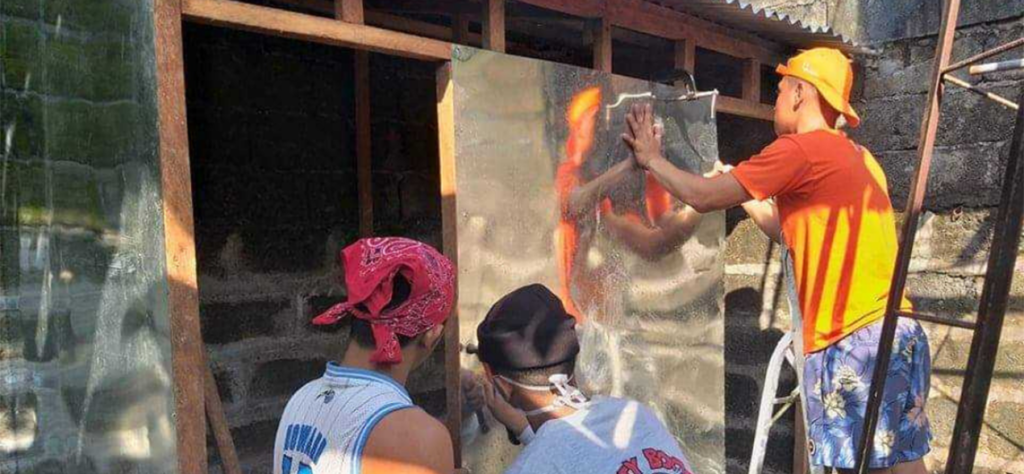
Another one, Raymart specialized in carpentry and masonry, grasped the occasion that SCP needed to build a small bathroom in order to lead the group in building it. The impact was immediate. Passionately, the boys learned to design, to practice welding, assemble pieces, work as a team and the result was more than satisfying.
“It is my first time to build something like this (shower room) I learned the basic skill needed but more than that, I felt productive again. “
The youth also had a series of training on employability skills. Other than the normal training on job preparedness, they experienced an online job interview simulation. Very timely for the new normal. “I am ready now because I gain more confidence in applying for a job. I learned the proper way of speaking and dressing. I also learned that focus and being prepared can help me become comfortable and lessen nervousness during the interview. I saw also my gaps in English and I want to learn more”
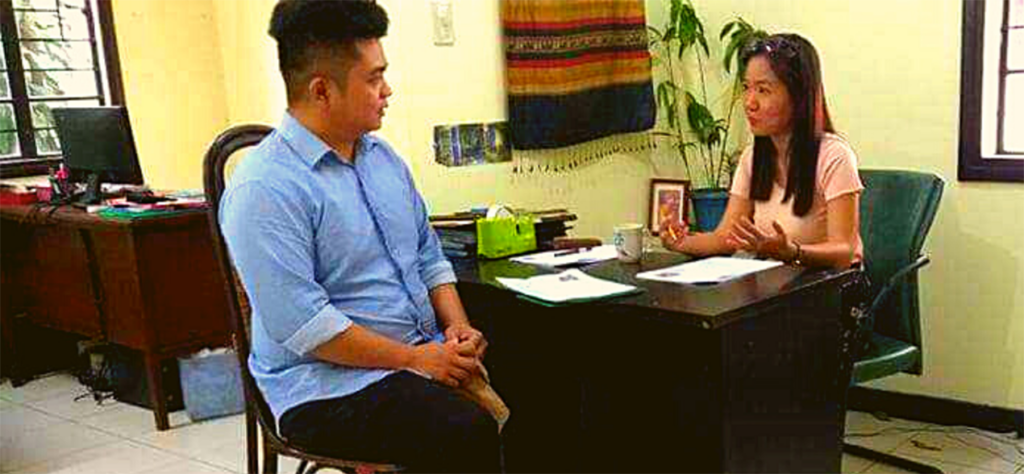
However, one beneficiary decided to discontinue the training. Success is not always here. Difficulties to cope with learnings, newness create an inner constant choice “Do I learn more? Do I accept to see that I don’t know? Do I remain in my feeling of being upset or do I go beyond my emotions?” These are inner challenges conjugated with the training that our youth have to undergo.
Eighteen years of developing the Second Chance Program showed us new opportunities to grow and to evolve. But above any kind of pandemic, what needs to be protected is the relationship. Let us not allow any pandemic to touch these nurturing and fundamental relationships which are the source of growth.

